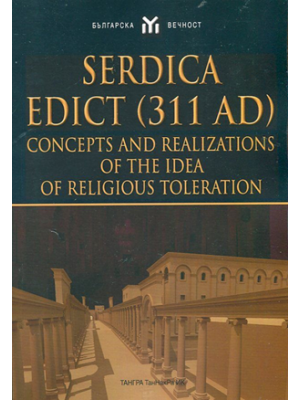Shopping Cart
0 item(s) - 0.00лв
Serdica is my Rome. The Urban Image and the Role of Serdica (mid. 3rd century – mid. 6th century AD)
Serdica certainly has an ancient and rich history long before his first Golden Age. This study, however, focuses exclusively on the turning point for the Roman Empire and the Christian church over the middle of the 3rd century to the middle of the 4th century. The aim is to explore and to bring out the main stages in the rise of the Roman and Christian Serdica, indicate the central causes for this rise and to focus on its character. The emphasis is on the close relationship between the transformation of the Empire and the Church, on the one hand and on the other — the urban development, cultural traditions, people and the rulers of the city. Ancient Serdica is represented not only by authentic old and new stories, but also by a hypothetical reconstruction of its main monuments. The book is based on historical sources and the great work of Bulgarian archaeologists started in the late XIX century and particularly active in the XXI century.
Table of contents
A Few Introductory Words
I. Serdica Prior to its Being Declared the Capital of Dacia Aureliana
II. Serdica in the Epoch of the Dominate and the Beginning of the Tetrarchy
III. Serdicas Instant Star under Serdica Emperor Galerius: The Edict of Toleration of April 30th 311 AD
IV. Why did Constantine the Great use to Say, Serdica is my Rome?
V. Second Ecumenical Council, Serdica, 343 AD
VI. An Unprecedented Ceremony: The Abdication of Emperor Vetranio in Serdica, Christmas of 350 AD
VII. Serdica in the Relations Between Roman and ”Barbarian“ Rulers
VIII. The First Saints and Prelates of Serdica Church
Epilogue
Endnotes
Сердика е моят Рим
| Details | |
| Publisher | TANGRA TanNakRa |
| Language | Bulgairan, English |
| Pages | 224 |
| Illustrations | color figures |
| Binding | hardback |
| ISBN | 978-954-378-088-4 |
| Creation date | 2012 |
| Size | 21 х 29 cm |
Write a review
Your Name:Your Review: Note: HTML is not translated!
Rating: Bad Good
Enter the code in the box below:















